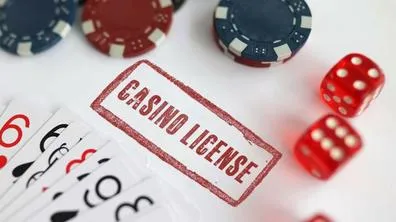
Maintaining mental sharpness is crucial for cognitive health and overall well-being. Brain-training puzzles offer a fun and effective way to enhance cognitive functions such as memory, problem-solving, and attention. Incorporating these puzzles into your routine can help keep your mind active and agile. Here’s a look at some of the best brain-training puzzles to boost your mental sharpness.
1. Sudoku
Overview: Sudoku is a number-placement puzzle where players fill a 9×9 grid so that each column, row, and 3×3 subgrid contains all numbers from 1 to 9 without repetition.
Benefits: Sudoku enhances problem-solving skills, pattern recognition, and logical thinking. It requires concentration and patience, which contribute to mental sharpness.
- Tip: Start with easier puzzles and gradually progress to more challenging ones to continuously stimulate your brain.
2. Crossword Puzzles
Overview: Crossword puzzles involve filling a grid with words based on given clues. Each word intersects with others, creating a complex web of clues and answers.
Benefits: Crosswords improve vocabulary, memory, and cognitive flexibility. They challenge you to recall information and make connections between words and clues.
- Tip: Regularly solving crosswords in various difficulty levels helps expand your knowledge and improve mental agility.
3. Jigsaw Puzzles
Overview: Jigsaw puzzles require players to assemble pieces to form a complete image. The pieces must fit together correctly based on shape and image alignment.
Benefits: Jigsaw puzzles enhance spatial reasoning, attention to detail, and problem-solving skills. They encourage patience and perseverance.
- Tip: Choose puzzles with varying numbers of pieces to challenge different levels of cognitive skills and maintain interest.
4. Logic Puzzles
Overview: Logic puzzles involve solving problems based on given clues and logical reasoning. Popular types include brainteasers, riddles, and lateral thinking puzzles.
Benefits: Logic puzzles improve critical thinking, deductive reasoning, and problem-solving abilities. They encourage creative thinking and mental flexibility.
- Tip: Engage with a variety of logic puzzles to keep your brain challenged and improve overall cognitive function.
5. Word Search Puzzles
Overview: Word search puzzles involve finding hidden words within a grid of letters. The words can be placed horizontally, vertically, or diagonally.
Benefits: Word searches enhance pattern recognition, attention to detail, and visual scanning skills. They help improve concentration and cognitive processing speed.
- Tip: Increase the complexity by selecting puzzles with larger grids or more challenging word lists to further engage your brain.
6. Brain Teasers
Overview: Brain teasers are short puzzles or riddles designed to challenge and engage your thinking. They often involve a twist or unexpected solution.
Benefits: Brain teasers improve problem-solving skills, creativity, and cognitive flexibility. They stimulate mental processes and encourage out-of-the-box thinking.
- Tip: Solve brain teasers regularly to keep your mind sharp and develop your ability to think creatively and critically.
7. Memory Games
Overview: Memory games, such as matching pairs or concentration, require players to remember the locations of cards or items to find matches.
Benefits: Memory games enhance short-term and working memory, attention, and cognitive processing. They help improve recall and mental organization.
- Tip: Challenge yourself with different memory games to strengthen your ability to retain and recall information effectively.
8. Mathematical Puzzles
Overview: Mathematical puzzles involve solving problems or equations that require mathematical reasoning and calculation. Examples include arithmetic puzzles and algebraic challenges.
Benefits: Math puzzles improve numerical reasoning, problem-solving skills, and logical thinking. They enhance cognitive abilities related to mathematics and analytical reasoning.
- Tip: Practice a variety of mathematical puzzles to develop strong problem-solving skills and maintain mental sharpness.
9. Pattern Recognition Puzzles
Overview: Pattern recognition puzzles involve identifying and completing patterns based on given sequences or images. Examples include sequence puzzles and visual pattern challenges.
Benefits: Pattern recognition puzzles enhance visual processing, cognitive flexibility, and problem-solving skills. They help improve the ability to recognize and predict patterns.
- Tip: Engage with different types of pattern recognition puzzles to strengthen your cognitive flexibility and visual processing skills.
10. Spatial Reasoning Puzzles
Overview: Spatial reasoning puzzles require players to manipulate and visualize objects in space. Examples include puzzles involving 3D shapes or spatial relationships.
Benefits: Spatial reasoning puzzles improve visual-spatial skills, problem-solving abilities, and cognitive processing. They help enhance the ability to understand and navigate spatial relationships.
- Tip: Challenge yourself with puzzles that involve various spatial reasoning tasks to improve your cognitive skills and mental sharpness.
Conclusion
Incorporating brain-training puzzles into your daily routine can significantly boost your mental sharpness and overall cognitive health. Puzzles like Sudoku, crosswords, and jigsaw puzzles offer engaging ways to enhance critical thinking, memory, and problem-solving skills. By regularly engaging with these puzzles, you can keep your mind active and agile, contributing to long-term cognitive well-being.
Win big with 3k.top – your ultimate online casino adventure starts here!





